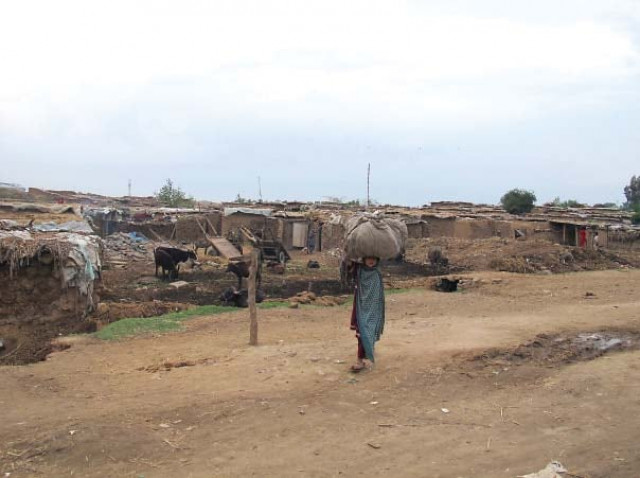Tolerance wanes as perceptions of Afghan refugees change
It has been 30 years since the Afghan refugees first started pouring in the country.

Counting a wad of crumpled notes, Muhammad Zahoor complained, “It is so difficult to get rent from my tenants every month. I just wish they would leave,” according to a report by IRIN, the UN information unit.
To supplement his income, Zahoor rents the three rooms that form the lower portion of his flat to an Afghan refugee family who, he says, “refuse to leave”.
“It is no longer easy to find people willing to rent rooms to us. We sometimes pay late because it is hard for my sons to find work,” his tenant Abdullah Khan, 80, who came to Pakistan with the first wave of refugees in 1980, told IRIN.
“Perhaps we have overstayed our welcome,” he said, noting that when they first arrived, the Afghan, including his family of seven, were warmly received.
“We are Pakhtuns, like most of the refugees themselves - and will never turn our back on our Afghan brothers. Hospitality is our tradition,” said Ameer Arif, a transport company owner who hires both Afghan and Pakistanis to drive his coaches.
“But it has been 30 years since they came and perhaps they should return given the competition for jobs.” He agreed, however, that the Afghan refugees had contributed to the economy.
His views were echoed by Sikander Lodhi, a Lahore-based economic analyst, who said the Afghan were good businessmen and trade in cloth, embroidery by Afghan women and other merchandise helped revive Pakistan’s economy in the 1980s.
As able-bodied labourers they contributed significantly to the construction industry. But they aroused jealousy among locals, Lodhi added.
“The people and the government of Pakistan have been generously hosting and supporting Afghan refugees. There is a great deal of empathy for Afghan refugees,” Duniya Aslam Khan, said a spokesperson for the UN Refugee Agency (UNHCR).
In 2009, the UN launched the Refugee Affected and Hosting Areas initiative in recognition of that hospitality which the Pakistani nation has been exhibiting for the past three decades and to improve social services and prospects for livelihood for refugees and their hosts.
Refugees have burdened the limited infrastructure in Pakistan. By collecting timber for cooking, they have contributed to the depletion of forests.
Many Afghan refugees continue to live in difficult conditions today. “Some live in mud houses in settlements that look like the villages they left behind.
The majority of urban refugees are concentrated in slums in or around major cities, barely surviving on casual labour,” according to UNHCR.
In a 2009, a report on Afghan refugees by the Human Rights Commission of Pakistan (HRCP) stated that official and popular perceptions of refugees have changed in response to altered geo-political realities.
Once encouraged to join anti-Soviet forces, which was perceived positively, refugees are now associated with the extremist groups responsible for terrorist attacks in Pakistan. Some of their members are believed to be former Mujahideen.
Despite the challenges, many Afghan refugees have managed to create a niche for themselves in their new home. After all, many of them were born and raised in Pakistan.
“I feel more Pakistani than Afghan. I play cricket, speak Urdu more often than Pashto and celebrate Pakistan’s Independence Day on 14 August with my friends,” said Farid Ali from Karachi. The 16-year-old said he had never faced discrimination. “This is my home.”
Many Afghans have succeeded in integrating into local society in cities, sometimes marrying into local families and gaining an education at top-notch colleges, stated HRCP in its report.
The commission said this raises questions about the actual number of refugees as a significant number have gained the right to Pakistani nationality through marriage or other forms of integration.
“Through [my wife’s] family, I have met many Afghans who are close friends,” said Azmat Khan, a Pakistani married to an Afghan.
“The floor manager and many salesmen at my department store are Afghans. They are under pressure to return, but I really want them to stay. They deal brilliantly with customers and are natural businessmen.”
Published in The Express Tribune, March 1st, 2012.













COMMENTS
Comments are moderated and generally will be posted if they are on-topic and not abusive.
For more information, please see our Comments FAQ